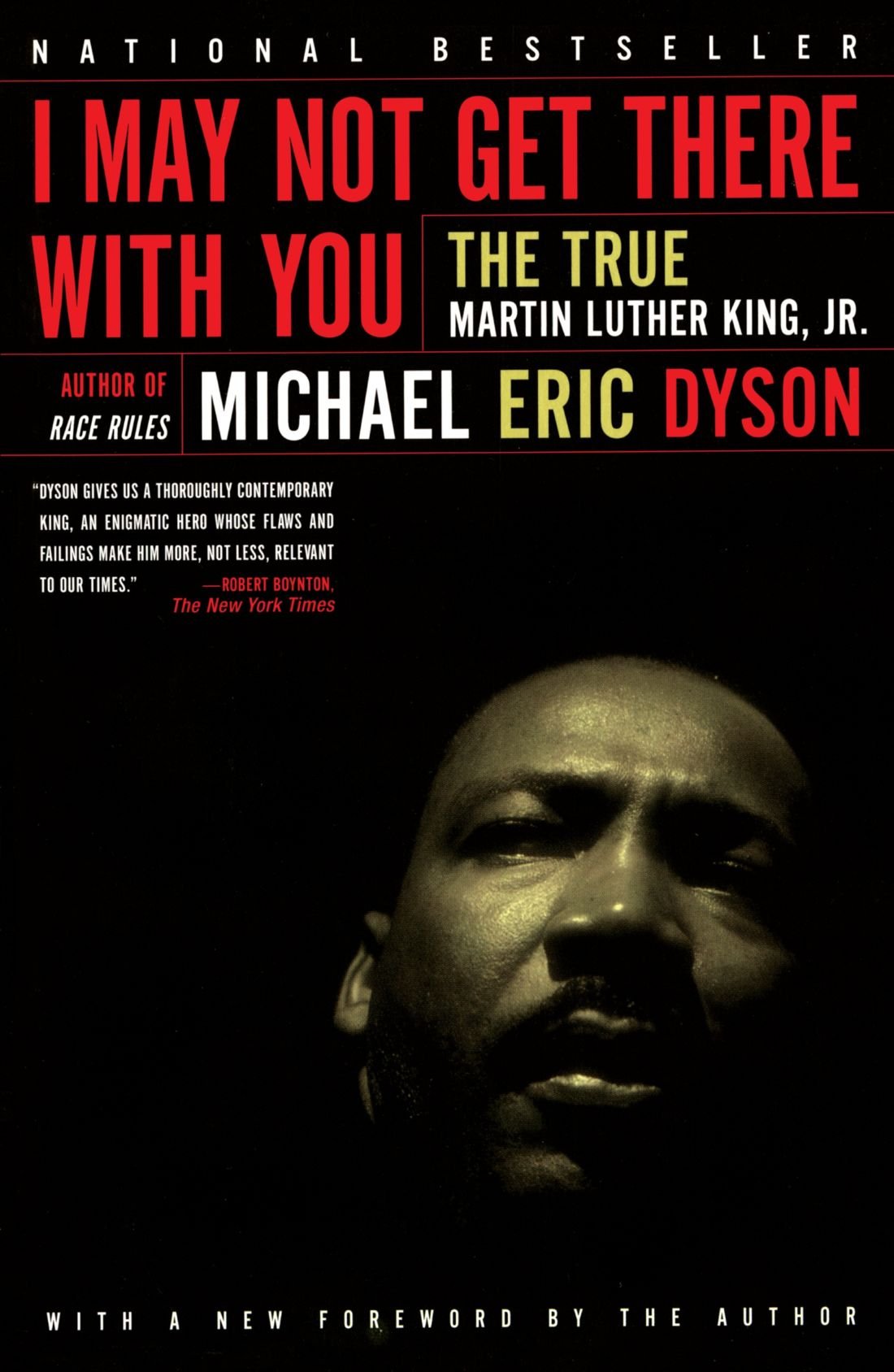Every January, young children throughout the United States learn four of the most famous words in American history: “I have a dream.” They learn about the man who spoke those words, Martin Luther King Jr., and the impact he had on the Civil Rights Movement and the latter half of the twentieth century. Many know the general facts, but few understand the full scope of King’s work and influence. For those hoping to gain more insight into the man and not just the American legend, Michael Eric Dyson’s book I May Not Get There with You is an excellent addition to the to-be-read list.
Though it was published over a decade ago, you’ll find that I May Not Get There with You is surprisingly (or not) still very relevant. The title is taken from probably the second most famous speech King gave—it was also his last. Delivered on April 3, 1968, the speech dealt mostly with the Memphis Sanitation Strike, but took on a prophetic tone when he spoke of the possibility of his death and how the movement would continue long after he was gone. “I’ve seen the Promised Land,” he said. “I may not get there with you. But I want you to know tonight, that we, as a people, will get to the Promised Land.”
Considering the recent events in Ferguson and New York City, the national debates surrounding race and equality, and the release of the movie Selma, this is, without a doubt, the best time to read Dyson’s exploration of King’s legacy. Examples of cultural and physical segregation, police-citizen relations, bias, opportunity loss, and general inequality are, unfortunately, not a thing of the past, and that alone makes for a powerful and uncomfortable reading experience.
Part biography and part sociological commentary, the book is composed of essays belonging to the three categories in which Dyson believes King is most misunderstood: ideology, identity, and image. If that seems like pretty much everything, you’re right. Dyson is nowhere near shy about pointing out the ways in which we have sanitized and generalized King’s story to fit into our own national and ideological narrative. While not for the faint of heart, the 432 pages that make up this collection are one hundred percent perspective-altering and thought-provoking. From musings on generational experiences of racism to a passionate argument that MLK was more radical than we realize, this book will interest and ignite anyone, with any level of knowledge about these topics, to look at things in a different way. One of the final chapters, about what it means to be a symbol and representative of a movement, stayed with me for hours after I finished the book.
Among a number of other things, what can be learned from I May Not Get There with You is that history tells many different stories, and that the one thing everyone believes cannot be changed—a person’s life—is always up for interpretation. Though it’s disappointing, disheartening, and frustrating to watch the news in 2015 and see that King’s mountaintop has not yet been reached, it’s also inspiring to see that his legacy continues to inspire. It’s a call to arms, explaining that following in someone’s footsteps means nothing unless you truly understand them.





